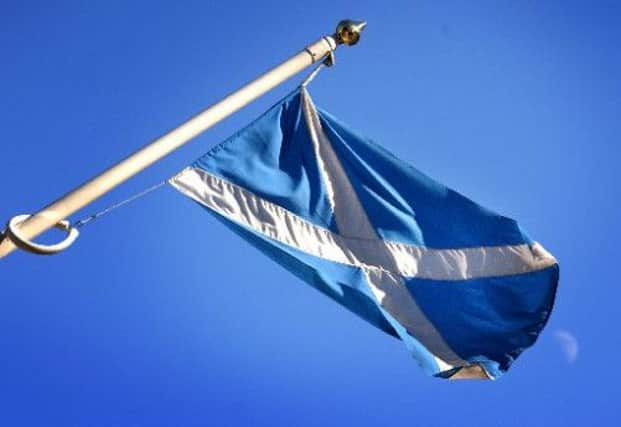Leaders: New points to ponder | Happy feat


Some of its memes have been rehearsed by both sides of the argument for decades, with little change. Occasionally a new twist reveals itself, but all too often the debate is a ritualistic dance in which all participants know the steps by heart. This is curious, because the world keeps throwing up issues that should be at the heart of the independence debate, but are not.
Two recent news stories illustrate this point. The first is the concern from detectives who investigated two separate child murders – the case of April Jones and the case of Tia Sharp – about the role played by online child pornography in the lives of the two men convicted of the killings, Mark Bridger and Stuart Hazell respectively. As might be expected, UK Government ministers have promised to examine what curbs can be placed on the easy availability of such images online, amid much debate.
Advertisement
Hide AdAdvertisement
Hide AdIf Scotland was an independent country, such matters would be the responsibility of the Scottish Government. And yet you will search in vain for any SNP or Yes campaign figure suggesting that an independent Scotland would take a distinctive view on this issue. This is despite an enormous amount of public concern – especially among parents – about online pornography. Of course, there is an important debate to be had about the extent to whether curbs on the internet are compatible with freedom of speech and expression, and this is a debate worth having. But this debate is not happening in the Scottish body politic in general, or the independence referendum campaign in particular.
There is a similarly curious reticence about one of the biggest stories of the moment – the revelations of widespread snooping by US intelligence on phone records, email correspondence and Facebook accounts, and the degree to which the British intelligence services are participating in this. Again UK ministers have taken a keen interest and ordered an inquiry into the implications for UK citizens. But there has been nary a peep from Kenny MacAskill, Scotland’s justice minister, on the implications for us north of the Border. Even within Holyrood’s current constitutional responsibilities for criminal justice, there is scope for the Scottish Government to tell us what access Scottish police have to individuals’ phone records and online presence, and what safeguards and oversight are in place to prevent this access being abused. And again, full responsibility for national intelligence-gathering would be in the hands of Scottish ministers in the event of independence, so how would they order things differently to protect Scottish citizens?
These are two of the issues of the moment. In fact they are two of the issues of the age we live in. Any thorough debate about national sovereignty in the 21st century would deal with them fully. It is not as if the SNP or the Yes campaign are shy about discussing how we would be governed after independence. Alex Salmond has even told us what rate corporation tax would be after Scotland split from the UK, and last week Nicola Sturgeon assured us the bedroom tax would be scrapped within a year of independence day. But the Yes campaign seems unable to escape from its comfort zone of familiar memes and hobby horses. This is a missed opportunity. And it is one more symptom of a debate that ill-serves Scotland and the Scottish voters.
Happy feat
This newspaper has had many great scoops down the years, and its writers have won more than their fair share of awards for exceptional journalism, but few of our successes have caused us as much pleasure as the one we report today. Yes, we can proudly reveal that Scotland on Sunday invented dad-dancing. Well, perhaps that is going too far. Dads have been dancing in their distinctive way for decades, long before this newspaper first hit the news stands in 1988. But according to the venerable Oxford English Dictionary, the first known usage of this neologism was in our news pages in 1994.
Dad-dancing is now a widely understood phenomenon, and a widely derided one, too. This is unfair. Dad-dancing at its most exuberant and expressive is a sight to behold. It is, in fact, an art form. There are ballerinas and exponents of contemporary dance who would struggle to replicate some dads’ unique combination of grace, grooviness and raw sexuality.
Especially on a day like today, when we are meant to celebrate all that is good about fatherhood, let us put aside our sneering attitude to dad-dancing. The world would be a far more drab place without this simple pleasure. We wish all our readers who happen to be dad-dancers a very happy Father’s Day.